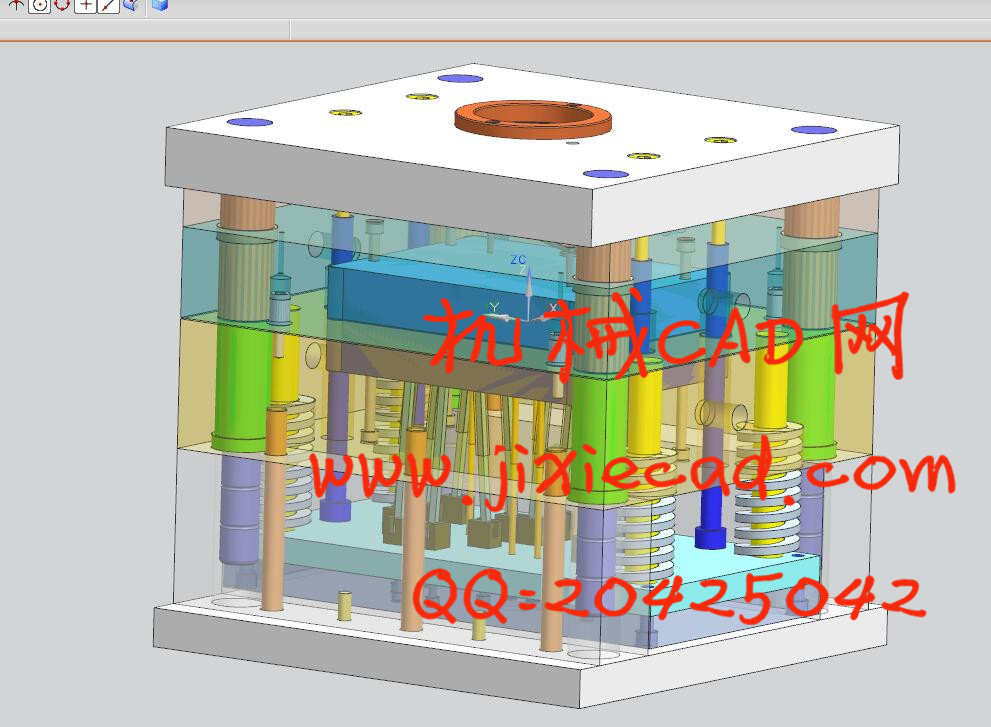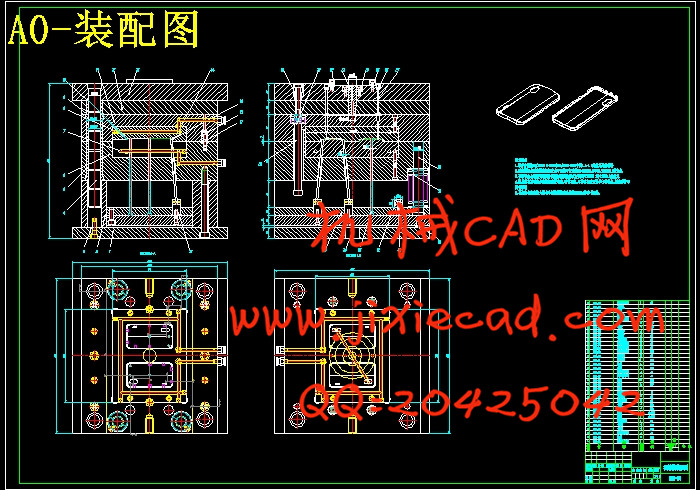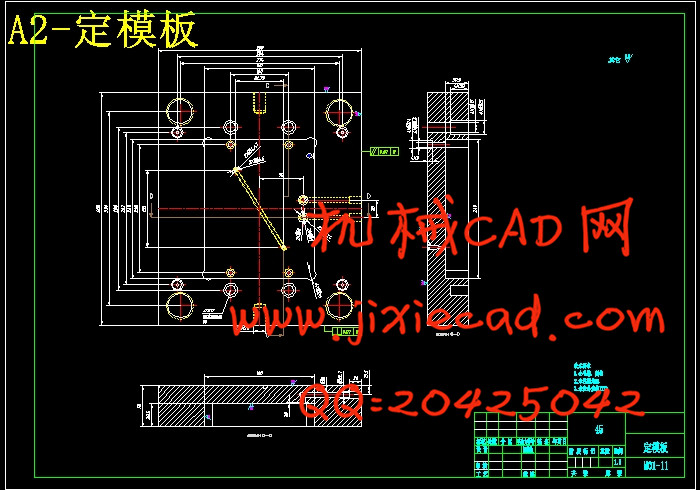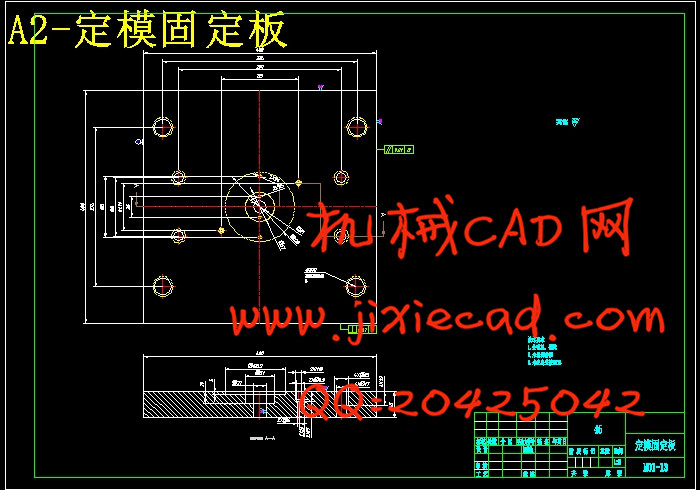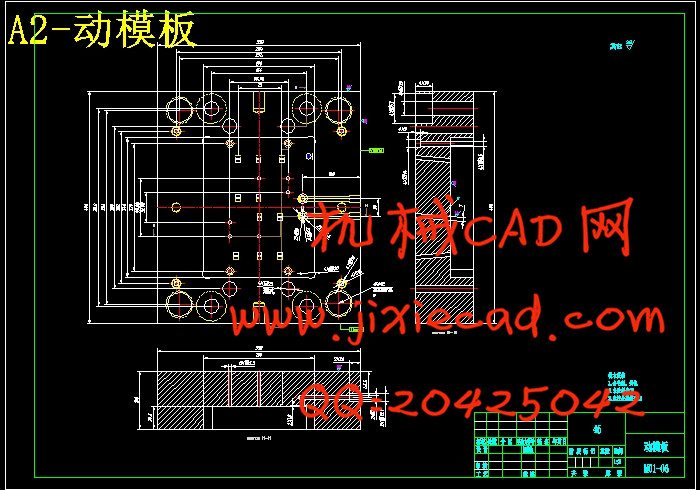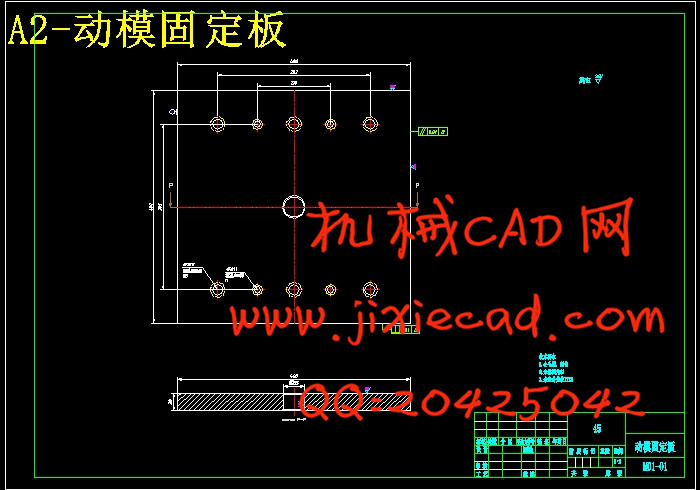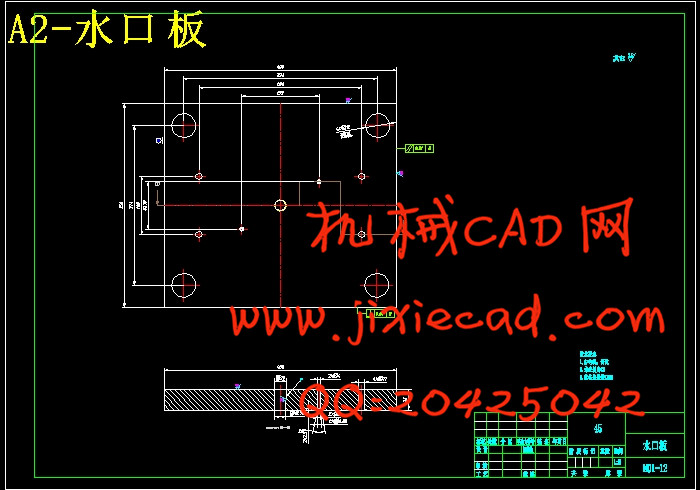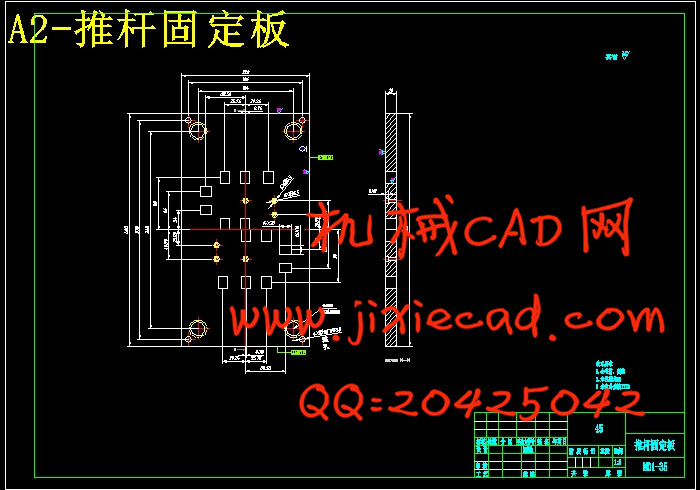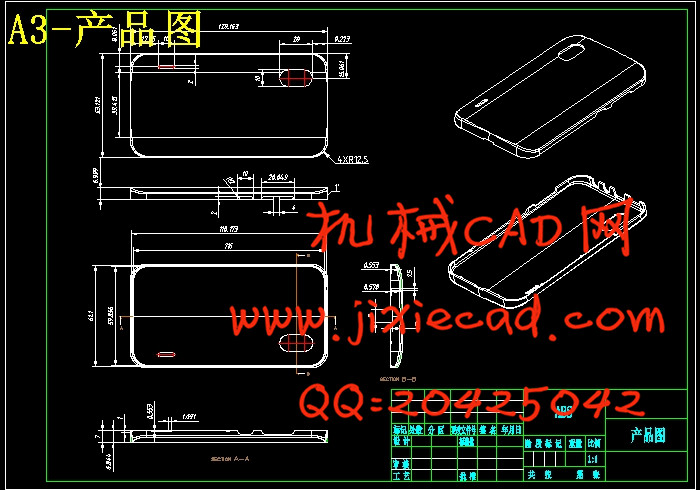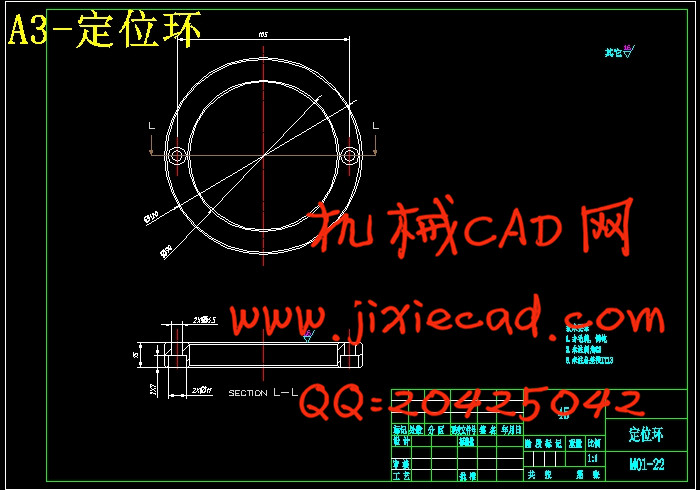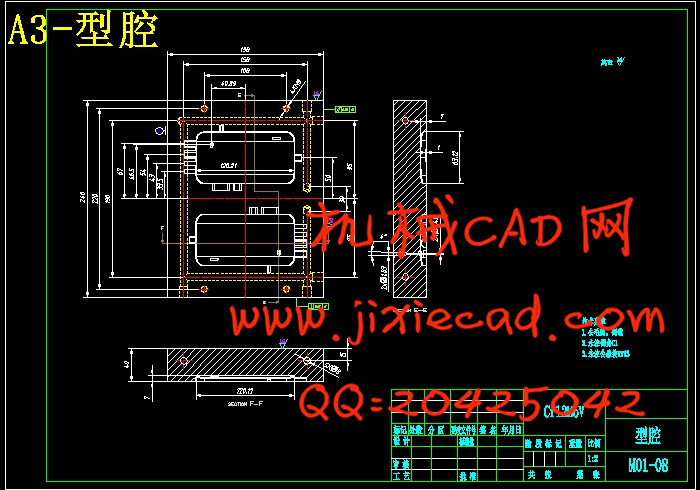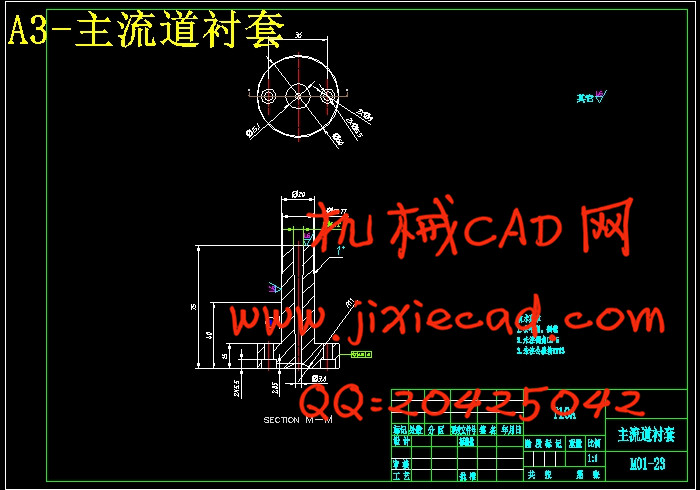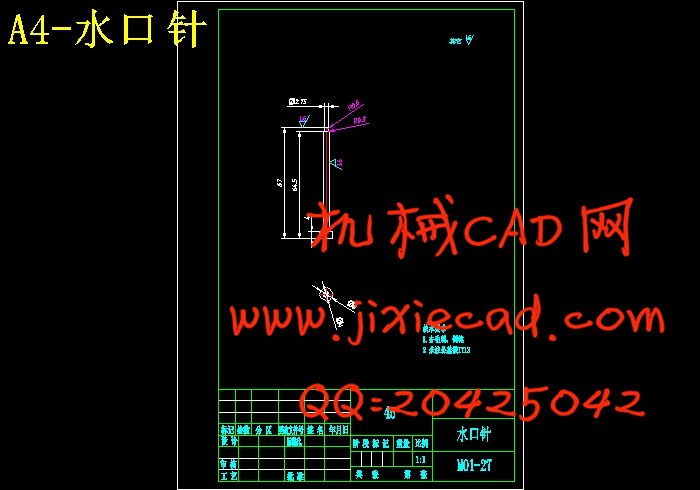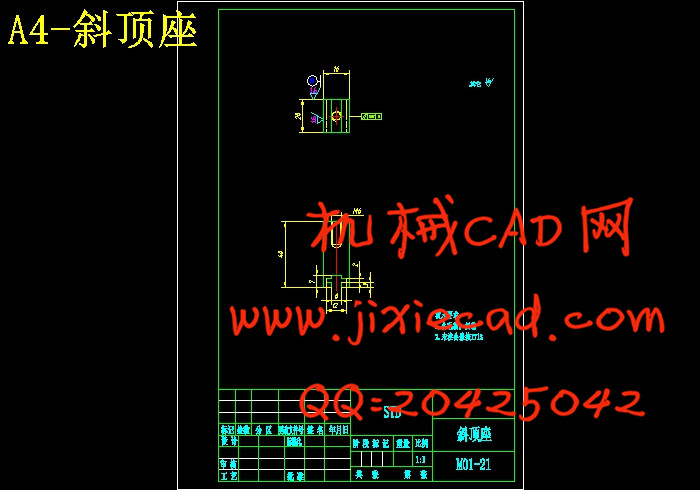设计简介
摘 要
随着经济全球化的不断深化,模具工业在一部分国民经济中起着越来越明显的作用。产品的质量的好坏以及生产效率的高低与模具水平的高低息息相关。首先此次毕业设计主要完成手机外壳注射模具的设计,设计中分析了手机外壳零件的结构及工艺性,确定该塑件的注塑成型方案并进行了注射模设计方面的相关计算。其次利用UG软件的CAD模块对手机外壳注射模进行三维曲面造型。本模具主要难点是采用了侧抽芯。模具结构紧凑、工作可靠、操作方便、运转平稳、冷却效果好、劳动强度低、生产效率高、生产的塑件精度高、生产成本低。本文从型腔数量和布局的确定、注射机选择、流道的设计、模板及其标准件的选用、冷却系统、成型部件的设计等给出了详细的设计过程。
注射模具设计是一个需要很多的经验的模具设计,所以我们可以利用各种设计经验与理论相结合的方式使得该设计更加完美。UG软件是一个极好的工具,可用于现代的成型加工与模具设计。
关键词:注塑模;三维曲面造型;UG;CAD
Abstract
With the deepening of the economic globalization, the die industry Plays a more and more obvious part in the national economy. Closely related to the level of quality of the product is good or bad, as well as the level of production efficiency and the level of mold.I finished the design of the injecting mold of Mobile phone shell firstly. The process includes the analyzing of the structure and crafts of the cellular Mobile phone shell, deciding the way of the injecting and doing certain calculation relating to the injecting-mold. Then make the modeling of the machinery in the way of three-dimension camber making use of the CAD part from UG The main difficulty of the mold is a side core. Advanced cohesive, working, reliable, easy to operate, smooth operation, good cooling effect, low labor intensity, production efficiency, the integrated production of high accuracy, low cost of production. The number and layout from Xingqiang identification, injection machine selection, flow Road design, the choice of standards and templates, cooling systems, shaped components of the design gives detailed design process.
The design of the injecting mold is one which need lots of experience, so we can make use of various of designing experience that must be combined with the theory ,which is the way making the design more perfect. The software of UG is a excellent tool used in the design of modern molding and machining.
Keywords: injecting mold; three-dimention camber mold; UG; CAD
目 录
摘 要 IIIAbstract IV
目 录 V
1 绪论 1
1.1 本课题研究的内容和意义 1
1.2 模具工业国内外发展的概况 1
1.3 本课题应达到的要求 2
2 手机外壳的设计及其成型工艺的分析 3
2.1 产品功能分析 3
2.2 塑件背面外壳分析 3
2.2.1 结构分析如下 4
2.2.2 成型工艺分析 4
2.3 塑料的选材及性能分析 4
2.3.1 使用特点: 4
2.3.2 成型特性: 4
2.3.3 ABS的主要性能指标 4
2.4 ABS塑料的注射过程及工艺 5
2.4.1 注射成型过程 5
2.4.2 ABS的注射工艺参数 5
2.5 ABS的主要缺陷及消除措施 6
2.5.1 龟裂 6
2.5.2 熔接缝 6
2.5.3 收缩 6
2.5.4 烧焦纹 6
3 模具设计方案的确定 8
3.1 分型面方案的确定 8
3.1.1 分型面的选择原则 8
3.1.2 分型面确定 8
3.2 型腔数量确定及排列形式 8
3.2.1 多型腔模具排列形式设计的要点: 8
4 模具设计 10
4.1 注塑机选型 10
4.1.1 注射量计算 10
4.1.2 注射机型号的选定 10
4.1.3 型腔数量的校核及注射机有关工艺参数的校核 11
4.2 模具浇注系统设计和浇口的设计 13
4.2.1 主流道的设计 13
4.2.2 分流道与浇口的设计 15
4.3 成型零件工作尺寸的设计和计算 15
4.3.1 型芯 16
4.3.2 型腔 17
4.3.3 型腔零件刚度和强度校核 18
4.3.4 成型零件钢材的选用 18
4.4 模架的确定和标准件的选用 18
4.5 合模导向机构和定位机构 19
4.5.1 导向机构的总体设计 19
4.5.2 导柱设计 20
4.5.3 导套设计 20
4.6 脱模推出机构的设计 21
4.6.1 推出机构的组成 21
4.6.2 推出机构的分类 21
4.6.3 脱模推出机构的设计原则 21
4.6.4 塑件的推出机构 21
4.6.5 脱模力的计算 22
4.7 斜顶与抽芯机构设计 23
4.7.1 侧向分型与抽芯机构类型的确定 23
4.7.2 斜顶的设计 23
4.7.3 各项尺寸的计算与校核 23
4.8 排气系统设计 24
4.9 冷却系统的优化设计 24
4.9.1 加热系统 24
4.9.2 冷却系统 24
4.9.3 冷却装置布置方案 26
4.10 模具材料例表 27
4.11 尼龙胶钉 27
4.11.1 特点 27
4.11.2 型号 28
5 塑胶模具的加工方法及工艺 29
5.1 常用加工工具及机器 29
5.2 加工方法及工艺 29
6 模具装配 30
6.1 塑料模具装配的技术要求 30
6.2 塑料模具装配过程 30
6.2.1 装配动模部分 30
6.2.2 装配定模部分 31
7 模具的试模与修模 33
7.1 制品的粘着 33
7.2 成型缺陷 33
7.3 注射填充不足 34
7.4 注射工艺不足 34
7.5 次品分析 35
8 结论与展望 36
8.1 结论 36
8.2 展望 36
致 谢 37
参考文献 38


